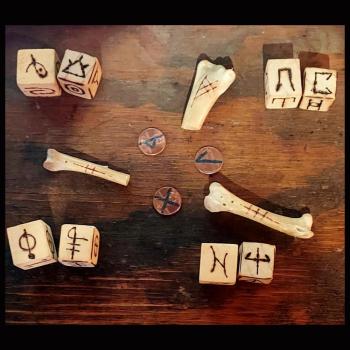One of the books on my shelf that I return to regularly is Mark Schwehn's Exiles from Eden: Religion and the Academic Vocation in America. It has become an indispensable guide for thinking about what I am supposed to be doing as an academic in the context of a Christian liberal arts college.
There is a lot I could say about this book, but the most inspiring part of it is Schwehn's discussion of the role of risk and wisdom in the educational process. Education, Schwehn argues, requires risk. Real education only occurs when we are prepared to "abandon some of our most cherished beliefs."
As Schwehn puts it:
The quest for knowledge of the truth, if it takes place in a context of communal conversation, involved the testing of our own opinions. And we must, of course, be willing to give up what we think we know for what is true, if genuine learning is to take place. At times, this will be easy, as when we learn that we were mistaken about some geographical detail or another. But much of our self-knowledge as well as our beliefs about what is truly good for us are not simply matters of what we know but matters of who we are. We thus often risk ourselves when we test our ideas.
Unfortunately, too many students today are unwilling to engage in the kind of risk-taking that is essential to education. Many Christian parents think that college is a place where "cherished beliefs" should be affirmed, not challenged. They want their children to have a four year experience in which they are told that everything they have ever believed about life, God, society, science, etc., is true.
Quite frankly, such an approach to college education baffles me. If this is what college is about, then what is the point? Why spend tens of thousands of dollars on an experience that will not stretch the mind? Students can participate on sports teams, make friends, have meaningful social experiences, find a spouse, play in the band, or learn certain specialized skills, and still not be educated. Why not just send your kids to a four-year Christian camp?
Please don't misread me. The kind of transformative liberal arts education I am talking about here does not mean that students must always abandon their most cherished beliefs in order to be truly educated. This is why wisdom is so important to the process. While education certainly requires a willingness to "surrender ourselves for the sake of a better opinion," wisdom, as Schwehn puts it, "is the discernment of when it is reasonable to do so."
What is the source of such wisdom? Where is it to be found? James 1:5 is a good place to begin one's search for this Christian virtue: "If any of you lacks wisdom, let him ask God, who gives generously to all without reproach, and it will be given him." A student obtains wisdom through prayer. They ask God for it.
Wisdom is also cultivated in community. The kind of Christian education that I am describing happens best in an environment where students can work through this transformative time in their lives with caring professors who love them and want to walk alongside of them. This, it seems to me, is the genius of a small, Christian, residential, liberal arts college. It is a safe place to take risks and a place where the pursuit of this kind of wisdom is encouraged.
Real education happens when students are so engaged with a new or foreign idea, and take that idea so seriously, that they discuss it with friends in the dorms, in the dining hall, or on their way back from practice. They spend time praying before, during, and after they open their textbook. The process of discerning whether or not they can incorporate such an idea into their own way of viewing the world might even cause them to lose some sleep. Sometimes wisdom might lead them to embrace this new idea because they conclude that it is true. Sometimes wisdom leads them to reject the idea, because they conclude that it is not true.
But be warned: such a process can be painful.
9/20/2011 4:00:00 AM





